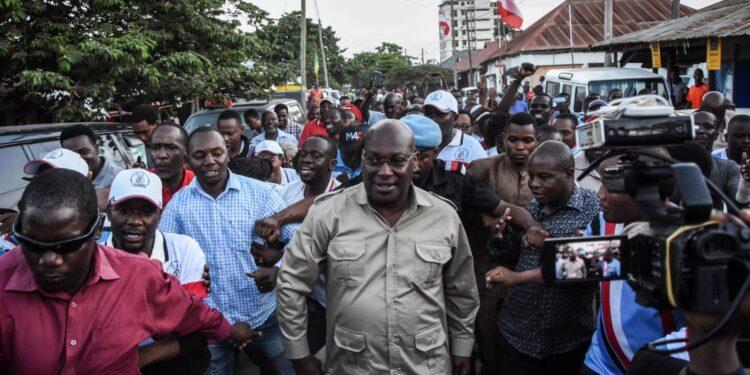Tanzanian authorities have arrested two prominent East African human rights activists who had travelled to Dar es Salaam to observe the treason hearing of detained opposition figure Tundu Lissu. The arrests, confirmed by a local advocacy group, come amid growing concerns about shrinking civic space and increasing political repression under President Samia Suluhu Hassan’s administration.
Kenyan activist Boniface Mwangi and Ugandan lawyer Agather Atuhaire were in the country to witness Lissu’s first in-person court appearance on Monday, a development closely watched by civil society actors across the region. Lissu, who survived a politically motivated shooting in 2017, faces treason charges related to a recent speech in which he allegedly called on citizens to resist and disrupt Tanzania’s upcoming elections.
The Tanzania Human Rights Defenders Coalition (THRDC) released a statement confirming that Mwangi and Atuhaire were being held at the central police station in Dar es Salaam. According to the statement, Mwangi is accused of providing false information to gain entry into the country. It remains unclear what charges, if any, have been filed against Atuhaire.
On Monday, Mwangi posted on X (formerly Twitter) that individuals identifying themselves as police officers had arrived at his hotel room and requested that he accompany them. “I will go with them when my lawyers arrive,” he wrote in the post, shortly before being taken into custody.
Paul Mselle, the chief spokesperson for Tanzania’s Immigration Services Department, said he was unaware of the arrests but promised to look into the matter. Government and police spokespeople did not respond to media requests for comment.
Several other Kenyan activists who travelled to Tanzania for the hearing—including former justice minister Martha Karua—were reportedly denied entry at the border or airport. Some posted on social media describing being questioned and turned back by immigration officials.
President Samia, who is seeking re-election in October, has previously pledged to uphold democratic principles and human rights. However, her government has faced criticism for detaining opposition members, tightening restrictions on media, and cracking down on dissenting voices.
In remarks made on Monday, Samia warned against what she called external interference. “Foreign activists should not invade and interfere in our affairs,” she said in a televised address, without naming specific individuals or groups.









